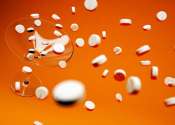Novel artificial genomic DNA can replicate and evolve outside the cell
Professor Norikazu Ichihashi and his colleagues at the University of Tokyo have successfully induced gene expression from a DNA, characteristic of all life, and evolution through continuous replication extracellularly using ...









